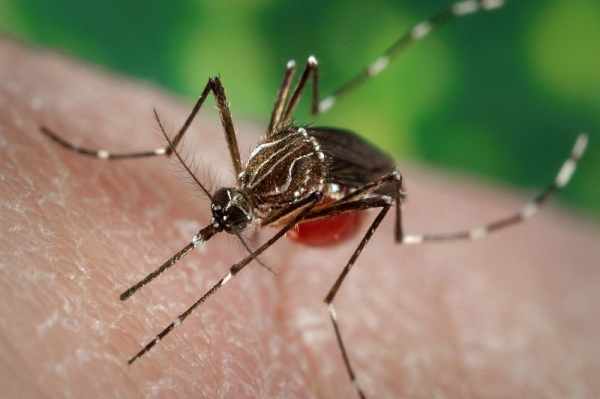
“Mosquitoes, once a nuisance, are now a threat,” New York’s state health commissioner declared Monday as the first person in the state to contract Eastern equine encephalitis since 2015 has died, the governor announced. Photo courtesy of the CDC
New York’s first person to contract Eastern equine encephalitis — or EEE — in almost a decade has died, the governor’s office announced Monday, as the state’s health commissioner declared the virus spread by mosquitoes an “imminent threat to public health.”
“We’ve been informed this patient has passed away from EEE. We extend our sympathies and our hearts go out to their family,” New York Gov. Kathy Hochul said. The state Department of Health said the patient was from Ulster County. Advertisement
“Keeping New Yorkers safe is my top priority,” Hochul added. “Following the first confirmed human case of EEE, my administration took statewide action to help protect communities — and with today’s declaration, we’re making state resources available to local departments to support their public health response.”
Among those resources is mosquito spraying between Sept. 30 and Nov. 30. Mosquito repellent is also being made available to state park visitors and campgrounds.
New York’s human EEE diagnosis was confirmed on Friday along the Hudson River. In response, doctors are urging people to wear long sleeves and insect repellent to prevent mosquito bites. Residents are also being advised to eliminate all standing water, where mosquitoes can breed, and to make sure there are screens on all windows and doors of homes. Advertisement
So far this year, there have been 10 human EEE cases, according to the Centers for Disease Control and Prevention. Other cases have been reported in Wisconsin, Massachusetts, New Hampshire, Vermont, Rhode Island and New Jersey.
While EEE in humans is rare, the disease can cause brain inflammation and can be deadly.
“Eastern equine encephalitis is different this year. While we normally see these mosquitoes in two to three counties each year, this year they have been in 15 counties so far, and scattered all over New York State,” State Health Commissioner Dr. James McDonald said in a statement.
While most people bitten by an infected mosquito will not develop symptoms, others could develop severe symptoms including headache, high fever, chills and vomiting. EEE could progress into seizures, encephalitis and coma. About a third of the patients with severe EEE will die, according to the CDC.
“I urge all New Yorkers to prevent mosquito bites by using insect repellents, wearing long-sleeved clothing and removing free-standing water near homes. Fall is officially here, but mosquitoes will be around until we see multiple nights of below freezing temperatures,” McDonald advised.
There is no treatment for the virus, which is usually found during peak mosquito activity in horses, birds and other animals. Eighteen cases of EEE have been identified this year in horses across 12 New York counties. Advertisement
“This life-threatening mosquito-borne disease has no commercially available human vaccine and must be taken seriously,” McDonald warned. “Mosquitoes, once a nuisance, are now a threat.”